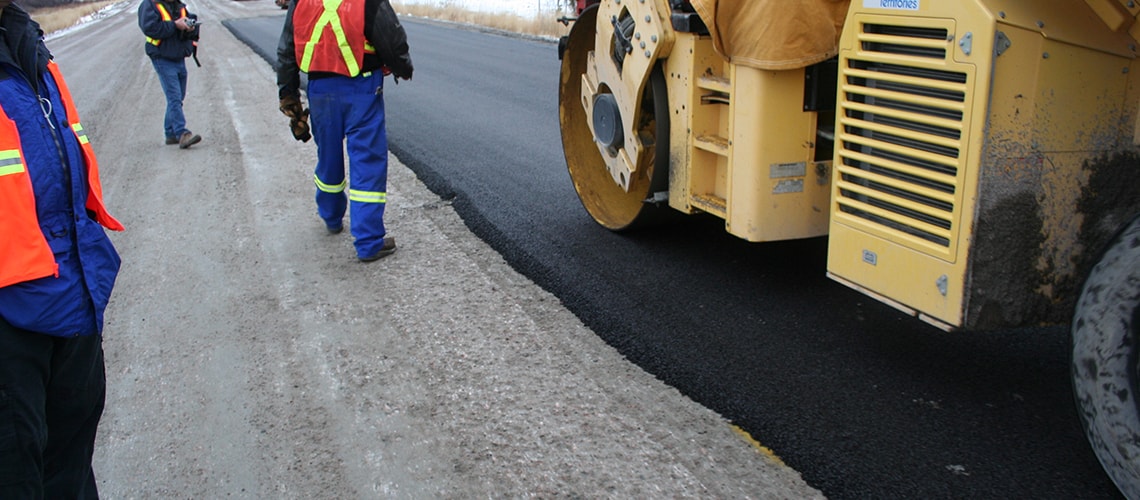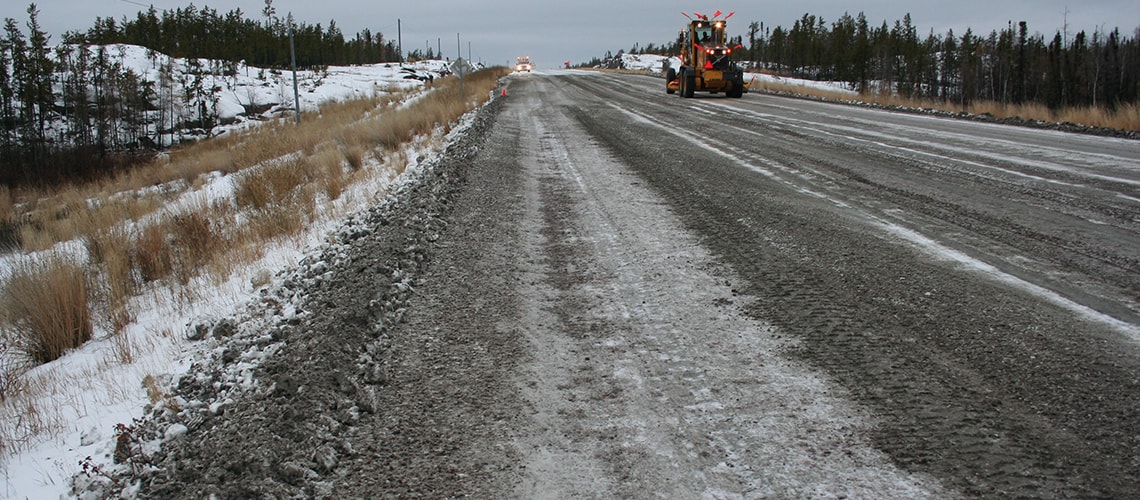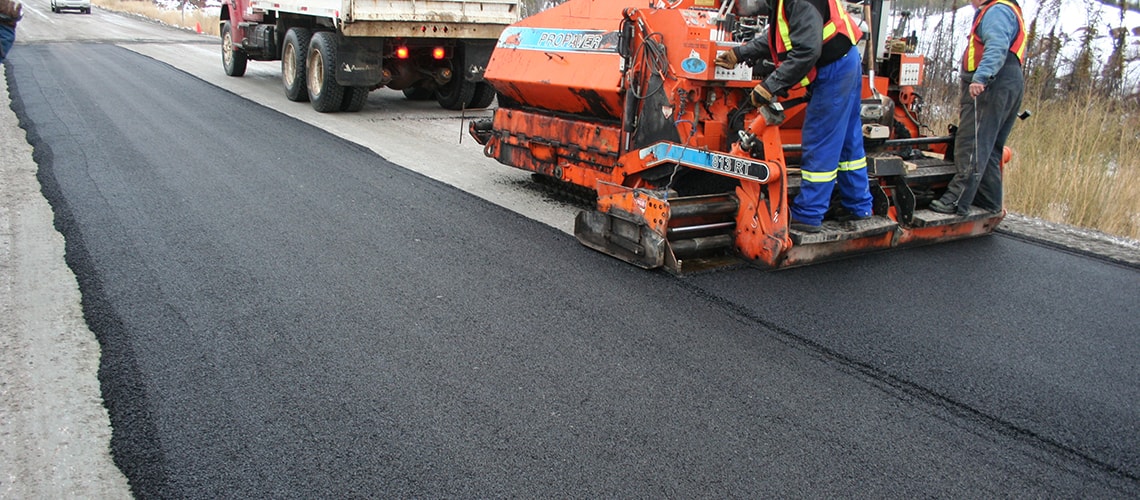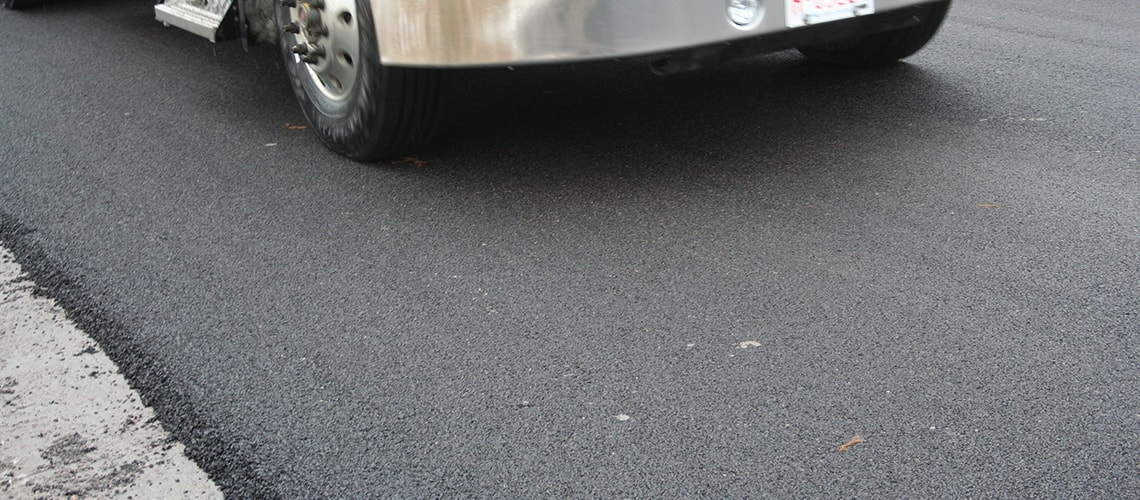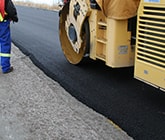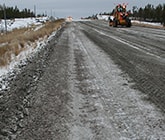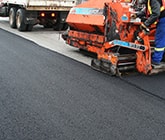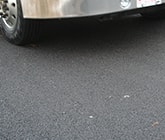Northwest Territories Hwy No. 3 | -10C
Northwest Territories Hwy No. 3 | -10C
Project Brief
On October 22, 2009, EZ Street Polymer Modified Cold Asphalt was installed as a full-width surface on the NWT Highway system. This was a trial project approved by the NWT Minister of Transportation.
NWT Highway No. 3 is the most heavily trafficked NWT highway, including fully loaded trucks with supplies for Yellowknife and the mines north of Yellowknife. This highway suffers from extreme climatic conditions (freeze/thaw cycles, sub-minus 40 °C conditions, concentrated heavy load traffic to ice roads/mine supply) and environmental challenges (permafrost, unstable subgrades, etc.).
80 m of full width deteriorated chip seal highway surface (on a gravel sub-base) was removed with a grader and replaced w/ a 40 mm depth surface of EZ Street Polymer Modified Cold Asphalt, installed with a paver and combination roller.
The material had been produced some 800 km away utilizing standard asphalt production equipment, shipped to the staging area beside the test section and stockpiled for over four weeks before being installed, illustrating the unprecedented logistical flexibility and advantages of the technology. The material was installed in less than one day, in temperatures between minus 8 °C and minus 10 °C.
Pavement Testing
Marshall strength / stability tests were performed on the EZ Street material by EBA Engineering with results of 16,800 N being achieved. The standard Marshall results for regular asphalt are expected to be between 16,000 to 18,000 N.
Project Update
In October 2012 (three years after installation) the test section was revisited to review the conditions of the surface and to review any deterioration that may have occurred.
The surface continues to perform without issue. The chip seal surface that was applied adjacent to the EZ Street test section in the same season has since had to be completely replaced.
Main Advantages and Benefits Demonstrated
This trial has shown that EZ Street Polymer Modified Cold Asphalt can be successfully installed under extreme conditions, at almost any time of year, with no detriment to performance. It has shown that this unique material can resist the stresses from constant freeze/thaw heaves and drops, common to Canadian roads. As demonstrated in many other applications, the unique polymer protection and composition of the material means that the mat remains slightly flexible and will absorb and resist some of the movement caused by constant freeze/thaw cycles. This will reduce the amount of cracking and deformation in that surface. Traditional hot mix asphalt is prone to extensive thermal cracking in the NWT due to the temperature extremes. There has been no thermal cracking in any of the NWT surfacing applications to date.
This trial also demonstrated the fact that this technology can be installed with a much smaller crew than required by traditional asphalt. The most experienced member of the install team (35+ years of asphalt experience) was able to engage in and supervise both the paving and compaction as completely separate events, as the EZ Street material can be optimally compacted at any time during the install, as opposed to traditional hot mix asphalt, that cannot be properly compacted once it begins to cool.
The quietness of the material is very dramatic, especially as a contrast to the high level of road noise emanating from the chip seal surface. This quietness is again a function of the unique polymer technology used to produce EZ Street Asphalt, allowing the material to absorb the kinetic vibrations that cause road noise.
